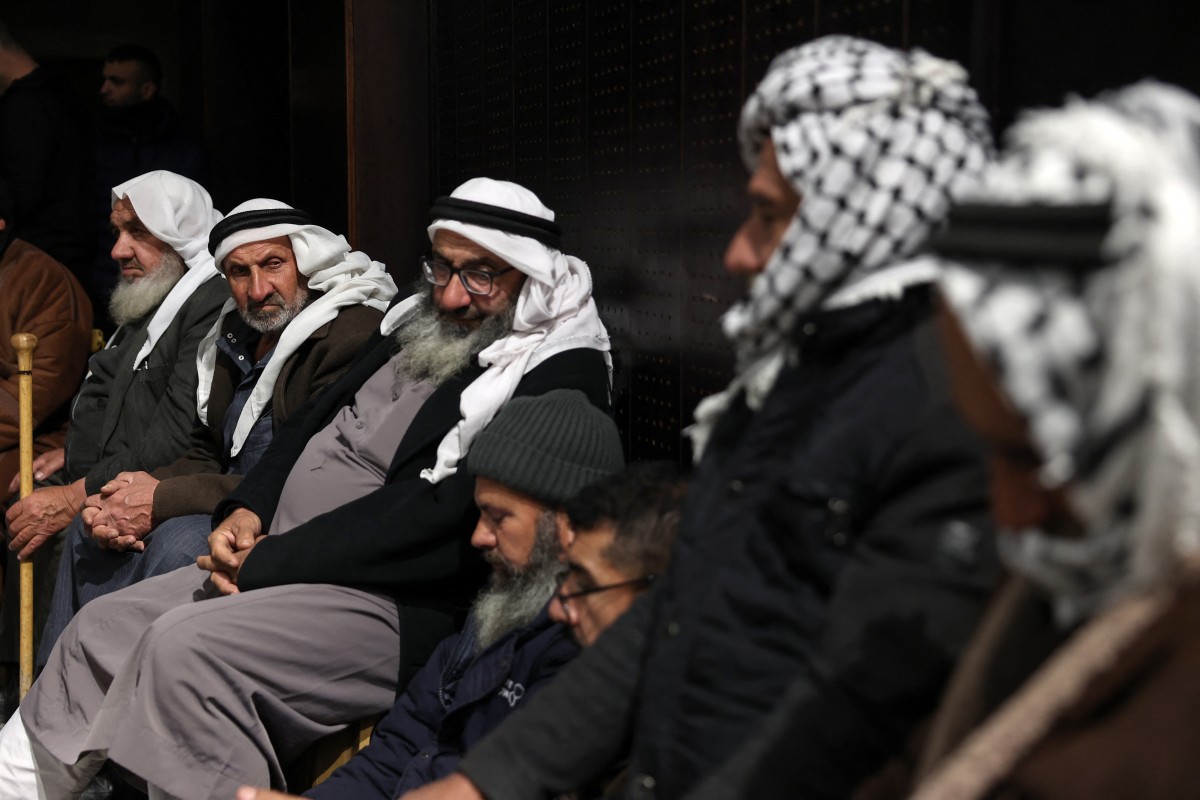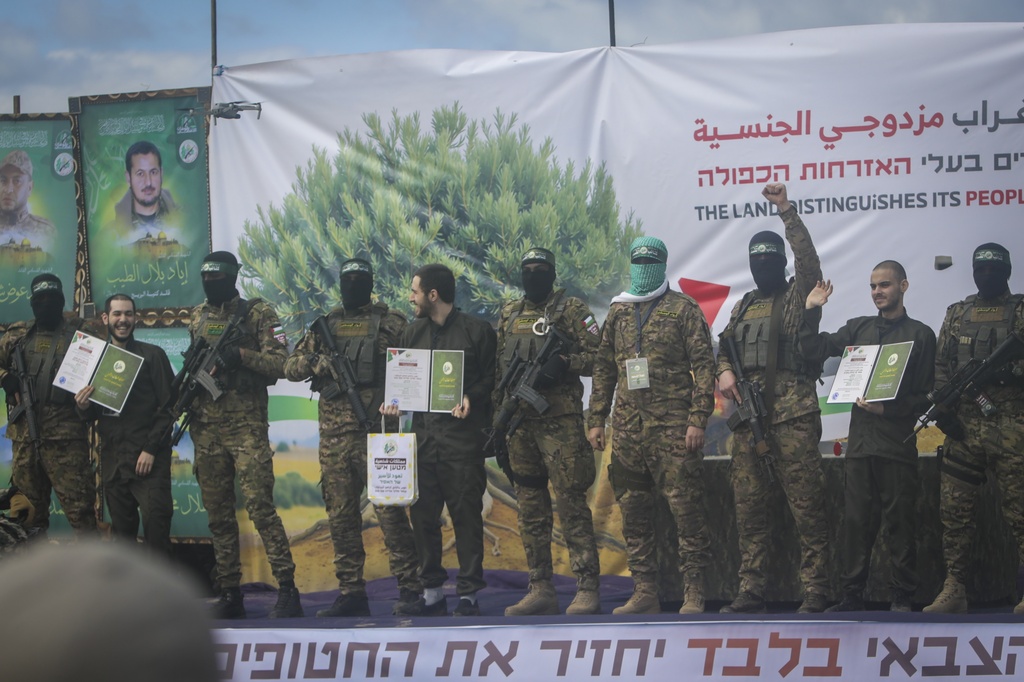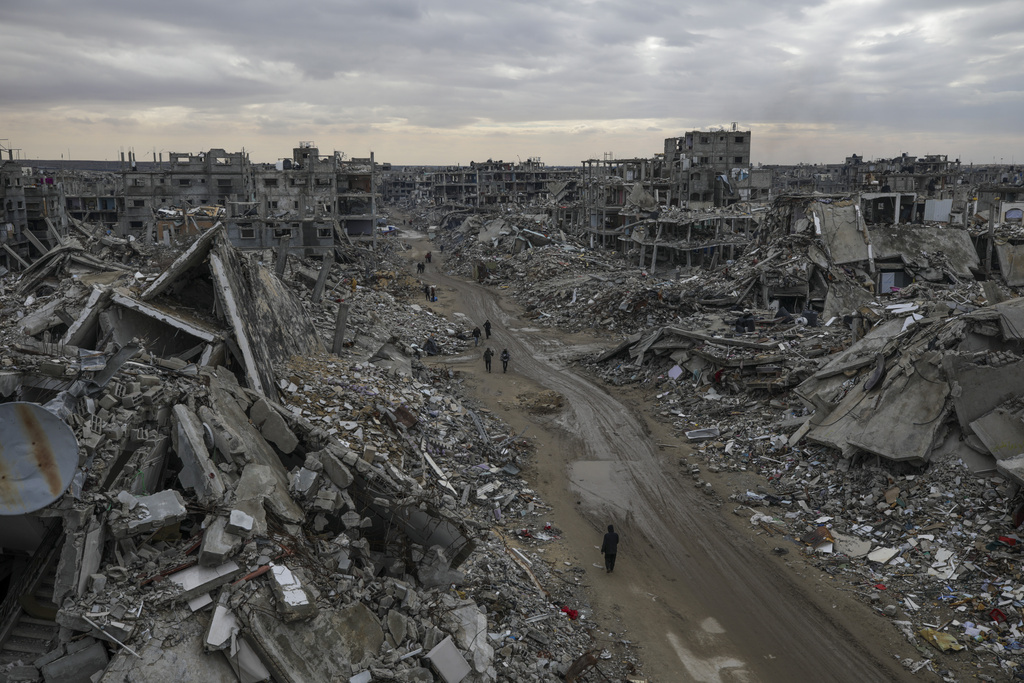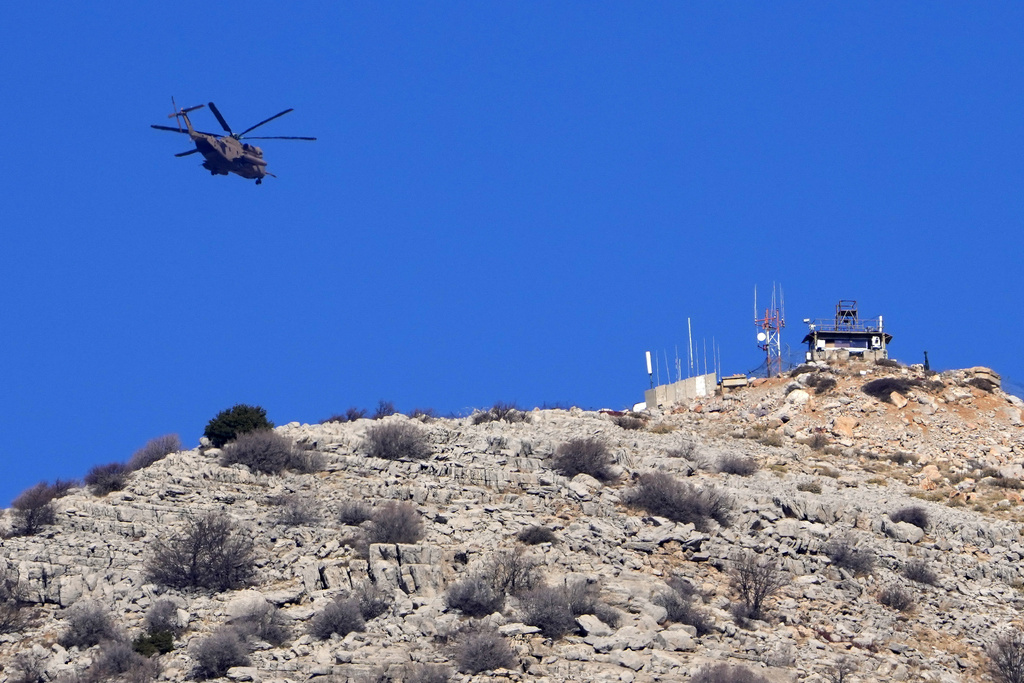
JERUSALEM/GAZA - Hamas on Monday said ensuring the agreed-upon release of more than 600 Palestinian prisoners by Israel is a prerequisite for further talks aimed at consolidating the ceasefire in Gaza.
In a press statement, Bassem Naim, a senior Hamas official, said any future discussions with Israel would only proceed if Israel meets the key condition of releasing the prisoners.
"Any indirect negotiations with Israel will only take place if a fundamental condition is fulfilled - the release of the over 600 Palestinian prisoners as agreed," Naim said.
Naim insisted that mediators - Egypt, Qatar, and the United States - must ensure Israel adheres to the terms of the agreement, which include releasing Palestinian prisoners.
This statement came two days after Israeli Prime Minister Benjamin Netanyahu postponed the release of more than 600 Palestinian prisoners, which was part of the seventh batch of prisoner-for-hostage exchanges between Israel and Hamas.

According to Netanyahu's office, the delay was a response to what it described as "provocations" by Hamas, including the "disgraceful hostage release ceremonies that dishonor hostages and the cynical use of hostages for propaganda purposes".
Netanyahu's office emphasized that the release of Palestinian prisoners would be contingent on guarantees from mediators that Hamas would not engage in similar acts of "provocation" in the future.
The ceasefire, which followed 15 months of intense conflict in Gaza, was agreed by Hamas and Israel on Jan 15 and went into effect on Jan 19.
ALSO READ: Hamas hands over Shiri Bibas’ body as Netanyahu visits West Bank

Attack on Rafah after failed rocket launch from Gaza
Also on Monday, Israel's military said it struck two sites in Rafah, southern Gaza Strip, after identifying an attempted rocket launch from within the Palestinian enclave.
There were no immediate reports of casualties. However, eyewitnesses reported hearing explosions as flames and smoke rose from one targeted site. They added ambulances had rushed to the scene.
According to a statement from Israel's military, the Israeli Air Force targeted an area from which the attempted rocket launch was made earlier in the day. The military added it also struck a launcher in Gaza.
ALSO READ: Arab League strongly opposes displacement of Palestinians
Earlier, a spokesperson for the military said a failed rocket launch from Gaza had been identified. The projectile fell inside the strip, the spokesperson added.
No Palestinian faction has claimed responsibility for the launch.

Raids on Syrian army bases
On the same day, Israeli troops have also raided Syrian army bases and seized or destroyed weapons found there, the Israeli military said in a statement.
During the raids, soldiers from the Paratroopers Brigade "located rifles, ammunition, and other military equipment left behind by the old Syrian regime forces", the military said. "All findings were either confiscated or dismantled."
The military said it had conducted "dozens" of similar raids since December, during which weapons had been "located, confiscated, and dismantled".
A battalion commander in the 474th Brigade, whose name was not disclosed, said in video footage released by the military that the aim of the raids was "to eliminate all the weapons and capabilities" of the Syrian army.
"This is part of a series of activities where we also located rockets, explosives, and mines, along with other explosives, and even tanks and armored personnel carriers, which we dismantled," he said.
READ MORE: Israel strikes Lebanon-Syria border crossings, claims Hezbollah smuggling weapons
The announcement came a day after Israeli Prime Minister Benjamin Netanyahu said Israeli forces would maintain an "indefinite" presence at the peak of Mount Hermon and in the buffer zone along the Syrian border. He also called for the demilitarization of the area south of Damascus.
In December last year, following the fall of Bashar al-Assad's government, Israel deployed ground forces into the buffer zone, a demilitarized area between the Israeli-controlled Golan Heights and Syria. The buffer zone is monitored by the United Nations Disengagement Observer Force, which was established under the 1974 Agreement on Disengagement.
Despite international condemnations, Israel later captured what it describes as "strategic points" in the Syrian-controlled side of Mount Hermon, claiming the move aims to protect Israeli civilians.



